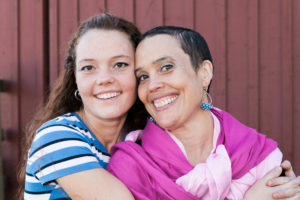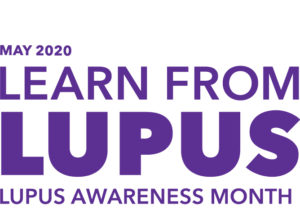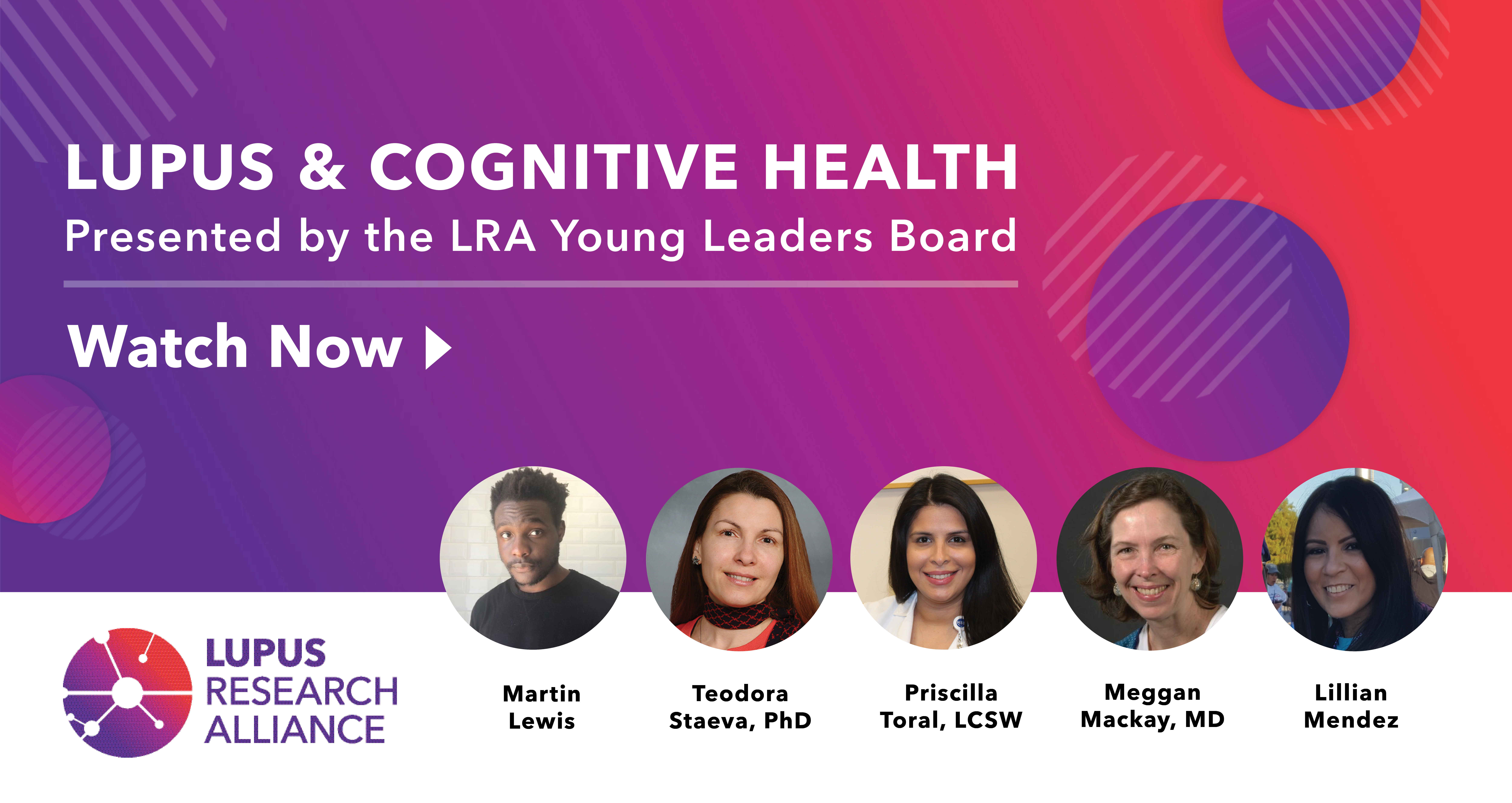Because of their hyper-immune system, people living with lupus are immuno-compromised and need to take every precaution to stave off potential infections which could be serious. They are extra-vigilant about how they go about their daily routines, employing strategies far beyond just hand washing to remain as healthy as possible. It’s part of life when you live with lupus. Amid COVID-19, the world is being asked to take similar precautions as we look to “flatten the curve.” And while that may seem out of the norm for most, it is everyday life in the lupus community. That’s why we can look to people living with this autoimmune disorder to introduce methods to help us all practice safer living as we look ahead to social distancing guidelines becoming more relaxed and society returning to a degree of normalcy, and also to appreciate the daily life of those with lupus from a more empathetic perspective.
What have you learned from living with lupus?
Share your strategies with us! Post your own tips with #LearnFromLupus and tag us on Facebook, Twitter, and Instagram, and we’ll share some ideas with the community.
Learn from People with Lupus
Hear from people with lupus remaining positive in the face of adversity.
Learn from Krystal Kaes

I also feel vindicated for always having a facial mask, hand sanitizer and blue gloves with me in my “kit” wherever I go.” – Krystal Kaes
Learn from Brenda Blackmon
“As I tell my daughter Kelly and other lupus warriors: Pace yourself, have patience, and always have hope!” – Brenda Blackmon
Learn from Elizabeth Santa Cruz
“Es importante lavarse las manos correctamente durante 30 segundos con agua y jabón, secarse sus manos con papel toalla o toalla limpia y cierre el caño con el papel o toalla que acabas de usar.
Es importante proteger la vida de nuestra comunidad con factores de riesgo: niños, adultos mayores y pacientes con enfermedades crónicas, cáncer o inmunosupresión.
Es recomendable cubrirse la boca y la nariz con mascarilla higiénica, pañuelos desechables o con una tela en público. Y evite tocar la mascarilla mientras la lleva puesta.” – Elizabeth Santa Cruz
Learn from Adrienne Nicole

1. The Early Morning Stroll
The last thing I want to do is stop moving. I know it’s a bit scary out there, and being around people (especially those without masks) is even scarier. To avoid groups of people, I take daily walks between 7am & 8am. Whatever time I start, I make sure I’m back inside by 8am because folks starting hitting the streets, in New York City, around that time. A lot of people just don’t like getting up early, so it’s a great time to experience the outdoors all by yourself!
2. Grocery Sanitization
Grocery delivery is definitely a regular occurrence since I’m not comfortable going into stores just yet. While it’s convenient, people are still involved in the process, so I’m keenly aware of the potential points of transfer. The star of the show is the dedicated, “clean” table, lined with a clear plastic bag in my hallway. Here’s my process:
- Request that the delivery person leave the groceries outside
- Put on latex gloves and bring the grocery bags inside
- Sanitize the gloves with a bleach wipe
- Wipe down each grocery item that is in a plastic bag or box & place on the “clean” table (periodically sanitizing gloves with a fresh wipe)
- When complete, sanitize gloves with a wipe
- Perishables are soaked in a vinegar/water mixture, then go into the refrigerator
- Carefully remove plastic gloves and wash hands
- All non-perishables sit on the table for 24 hours and are put away
If you don’t have enough space for a separate table, plastic can be put on the floor in a corner instead. It’s definitely a process, but I’d rather be safe than sorry!
3. Don’t Break The Health Routine
Doing routine things like going to the lab are now a bit trickier because of the potential exposure, but it’s important not to make adjustments without consulting your physician. Check in with him/her to see if the benefits outweigh the risks and make the decision as a team.
I hope these tips help keep you moving & healthy!
Adrienne Nicole is CEO of Adrienne Nicole Productions, a video production & photography firm based in Brooklyn, NY. She is a fierce lupus patient advocate who loves to encourage her fellow lupies and share her experiences across the country.
Learn from Martin Lewis
Meet Martin Lewis, an actor who was diagnosed with lupus and kidney failure at 10 years old. Martin shares his experience of growing up and living with lupus nephritis, how his passion for acting keeps him going, and how talking about it with others allows him to not only survive, but to thrive.
Lupus Awareness Month 2020
Lupus and Cognitive Health
Watch a videotape of our recent webcast: Lupus and Cognitive Health
Presented by LRA’s Young Leaders Board
People with lupus know only too well the need to avoid stress to prevent flares while optimizing emotional and cognitive wellbeing. But that’s pretty hard to do, especially in this time fraught with societal upheaval amid a global pandemic that’s affecting members of this community more severely than most.
Our Young Leaders Board, a diverse group of young professionals, presented a videotaped webcast to address this very topic as part of LRA’s Learn From Lupus program.
Moderator: Martin Lewis, LRA Young Leaders Board, Actor, and Lupus Warrior
Panelists:
Meggan Mackay, MD, Rheumatologist and researcher, Feinstein Lupus Center of Excellence
Will present on clinical trials looking at why many people with lupus have cognitive impairment – problems with thinking, concentration and memory.
Priscilla Toral, LCSW, Senior Manager, LupusLine®/Charla de Lupus (Lupus Chat)® Programs at Hospital for Special Surgery (HSS)
and
Lillian Mendez, Senior Program Associate ICharla de Lupus (Lupus Chat)® at HSS
Will share advice on normalizing mental health conversations for people with lupus, and offer useful tips for coping with lupus, particularly in the stressful time of COVID-19.
Teodora Staeva, PhD, Chief Scientific Officer, Lupus Research Alliance
Will introduce the LRA’s Brain Bank Program, an initiative to help researchers study brain tissue to better understand why lupus causes cognitive issues.
______________________________________________________________________________
Brunch with Brenda: A Conversation About Lupus in the Age of COVID-19
World Lupus Day, May 10th, coincides this year with Mother’s Day, so we celebrated both by hosting a Brunch with Brenda Blackmon, her daughter Kelly D. Kelly and LRA Executive Director Andrea O’Neill – three leading ladies of the lupus community.
Guests:
- Brenda – like many mothers, wears many hats and as a mother of a daughter with lupus, shared insights on how to support a loved one in these particularly trying times and how as a care partner, she takes care of herself so she can support her daughter.
- Kelly – provides the lupus perspective on what extra health vigilance means, what people can learn from the lupus community.
- Andrea – Executive Director of LRA, shared what LRA is doing to advance research and keep the lupus community up to date in these trying times of the COVID-19 pandemic.
Their conversation raised the growing use of telemedicine for virtual doctors’ visits. We compiled these Tips to Get the Most Out of Your Telemedicine Appointment with the help of a lupus specialist at Hospital for Special Surgery, Dr. Lisa Sammaritano.
______________________________________________________________________
Continue to Be Smart and Stay Safe. Your physician is your best source of information on how to stay safe and for treatment advice.
Read the CDC guidelines on how to stay safe amid COVID-19.
Read the CDC guidelines on wearing face masks.
Read the WHO guidelines on wearing face masks.







